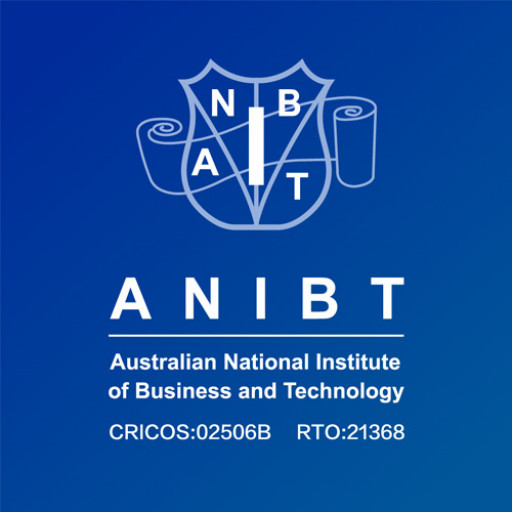Photos of university / #ucl
This MSc will provide students with the skills and knowledge to allow them to participate effectively in the creation and growth of high-impact pharmaceutical business ventures. Its graduates will be ideally positioned to initiate their own start-up companies or join existing biotech or pharmaceutical businesses.
Students will learn how to develop and assess a new business concept, and how to raise finance for and market a business and its outputs. They will build their scientific skill set by exploring four scientific research areas in pharmaceutics, and will interact closely with and be mentored by those who have direct experience of initiating a start-up business.
Students undertake modules to the value of 180 credits.
The programme consists of four core modules (60 credits), four optional modules (60 credits), a scientific research project (30 credits) and a business case development project (30 credits).
Core modules
- Mastering Entrepreneurship
- Entrepreneurial Marketing
- Entrepreneurial Finance
- Initiating a Pharmaceutical Start-Up
Optional modules
Term One
- Analysis and Quality Control
- Preformulation
- Formulation of Small Molecules
- Personalised Medicine
Term Two
- Pharmaceutical Biotechnology
- Clinical Pharmaceutics
- Nanomedicine
- Formulation of Natural Products and Cosmeceuticals
Dissertation/report
All students undertake two projects which comprise the major component of this MSc programme and culminate in two written reports and oral presentations. One of these is a short laboratory research project, while the second involves the development of a business case for a new pharmaceutical endeavour.
Teaching and learning
The programme is delivered through a combination of lectures, tutorials, seminars and practical sessions as well as industrial visits. Assessment is through a combination of written examinations, coursework assignments and the project.
An upper second-class UK Bachelor's degree or higher in pharmacy, pharmaceutical science, chemistry, chemical engineering, materials science, biotechnology, pharmaceutics or a related field in the life or physical sciences, or an overseas qualification of an equivalent standard is required.
The Pharmaceutical Formulation and Entrepreneurship program at University College London offers a comprehensive pathway for students interested in the development of pharmaceutical products and the entrepreneurial aspects of the healthcare industry. The financing of this programme generally includes a combination of tuition fees, scholarships, and financial support options provided by UCL and external organizations. Tuition fees vary depending on the student's nationality, with overseas students typically paying higher rates than domestic students. For the 2023/2024 academic year, international students enrolled in this program can expect tuition fees to be approximately £35,000 per year, whereas home students may pay around £9,250 annually.
UCL provides a range of scholarships and bursaries to support students financially, including those specifically aimed at postgraduate students in science and engineering fields. These scholarships consider academic excellence, geographic origin, and financial need. Prospective students are encouraged to explore options such as the UCL Graduate Research Scholarships, departmental bursaries, and external funding sources like industry-sponsored scholarships and government loan schemes.
In addition to scholarships, students may be eligible for financial aid or loan programs offered by their home country or international agencies. UCL also offers guidance and resources for students seeking part-time employment opportunities during their studies, which can help offset living expenses and other costs associated with studying abroad.
Living expenses in London are a significant part of the overall cost, with estimated annual living costs ranging from £12,000 to £15,000, covering accommodation, food, transportation, and personal expenses. Students are advised to plan their finances carefully and explore all available funding options well in advance of their studies.
Moreover, the university sometimes collaborates with industry partners to provide internships, funding, and project-based work, which can contribute to students’ financial stability and professional development. These partnerships also open pathways for practical training, which enhances employability after graduation.
Overall, while the cost of studying Pharmaceutical Formulation and Entrepreneurship at UCL can be substantial, particularly for international students, the university’s extensive financial support network and external funding options aim to make this advanced education accessible to a diverse student body. Students are encouraged to consult the official UCL website and contact the admissions office for the latest information on tuition fees, scholarships, and funding opportunities available for the upcoming academic year.
The MSc in Pharmaceutical Formulation and Entrepreneurship at University College London (UCL) is a specialized postgraduate program designed to equip students with a comprehensive understanding of pharmaceutical formulation science combined with essential entrepreneurial skills. The program aims to prepare graduates for careers in the pharmaceutical industry, particularly in drug formulation, product development, and business management. The curriculum emphasizes both scientific and commercial aspects, fostering innovation and entrepreneurial thinking within the pharmaceutical sector.
Students enrolled in this program benefit from UCL's strong links to the pharmaceutical industry and access to advanced laboratories and research facilities. The coursework includes modules on drug delivery systems, formulation development, regulatory affairs, and clinical testing, alongside modules on entrepreneurship, business planning, and intellectual property rights. This multidisciplinary approach ensures that graduates are well-versed in scientific principles and are capable of translating innovative ideas into commercial products.
The program typically spans one year for full-time students and provides opportunities for practical experience through industry placements, internships, and collaborative projects. Graduates can pursue various careers, including formulation scientist, product development manager, regulatory affairs specialist, or start their own biotech or pharmaceutical companies. Given UCL’s reputation for research excellence and innovation, students are encouraged to engage in cutting-edge research and contribute to advancements in pharmaceutical sciences.
Overall, the MSc in Pharmaceutical Formulation and Entrepreneurship at UCL blends scientific rigor with entrepreneurial training, making it a unique offering for students aspiring to lead in the development and commercialization of new pharmaceutical products. The program's structure is designed to foster leadership, innovation, and a deep understanding of both the scientific and business challenges faced by the industry today.






